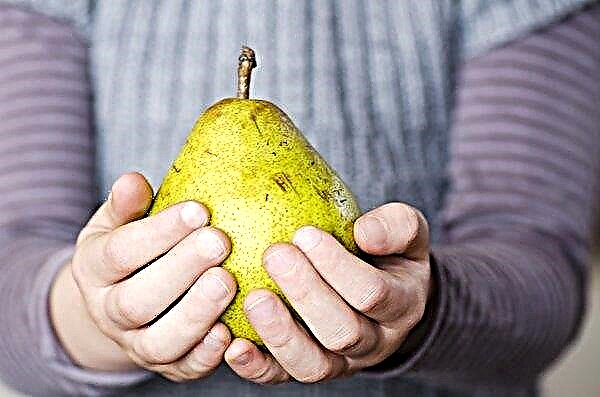
Almonds are one of the most delicious and healthy varieties of nuts. But, like other nuts, almonds raise a lot of questions among pregnant women, the main one of which is the question of the permissibility of using the product while carrying a child and the amount of the product that will not harm. This article will answer these questions.

Benefits for pregnant women
Almonds mainly grow in Asia and the Mediterranean and are already peeled on the shelves of Russian stores. The grains contain proteins, carbohydrates and a small amount of fiber. Almonds are half fat and only 5% minerals. In 2015, an international study of the nutritional suitability of the most popular foods was conducted, and the ratio of nutrients in almonds was highly rated by experts. In terms of nutritional fitness, the product ranked first among exactly 1,000 other food products. It's believed that it has everything to meet the daily needs and requirements of the human body.
Almond kernels are not the only food used. It is used to make butter and the famous almond milk. Almonds also have medicinal properties. It is rich in B vitamins, which are extremely necessary for the normalization of metabolic processes, as well as for the functioning of the nervous system and muscle tone. The nut contains a large amount of vitamins E, A, calcium, zinc and phosphorus.

Until recently, it was believed that nuts, as products of high allergic status, are undesirable for pregnant women. It has been argued that eating them during pregnancy increases the risk of food allergies in newborns and infants. However, the latest research by scientists was unconditionally accepted by the experts of the World Health Organization, and the recommendations were changed. Now pregnant women can not only eat nuts, but also need them, since in small amounts antigen proteins only strengthen the baby's immunity and protect him from allergies in the future... Therefore, we can safely say that almonds have every right to be included in the diet of a future mother, but its use requires caution.
Despite the fact that the composition and properties of almonds, in fact, satisfy the daily requirements for certain vitamins and mineral compounds, the diet should be balanced and varied. It must contain vegetables and fruits, cereals, meat, fish, dairy products.
If you introduce a little almond into such a diet, it will not get worse, moreover, the benefits will be tangible and undeniable.


Systematic moderate consumption of almonds increases immunity, makes it stronger, namely, the immune defense during pregnancy is usually significantly weakened, and therefore a woman is more at risk of contracting a viral or fungal infection, bacterial ailments.
Almonds improve digestion and metabolic processes, but the main property of the product is its calming effect on the nervous system. A woman who loves and eats almonds sleeps better, is less anxious, and is easier to handle stressful situations.
Everything that has been said about the benefits applies to sweet almonds. This species is considered acceptable for food, has a pleasant, but tart taste with a slight bitterness. There is another type of royal nut - bitter. You won't be able to gnaw it. It is quite toxic, essential oil is extracted from it, soap is made, trees are used for wood.

Potential harm and contraindications
With all the visible advantages of the royal nut, there are also contraindications. The nut belongs to the group of highly allergenic products, and therefore it should not be consumed by pregnant women with a burdened allergic history. The rest should be extremely vigilant, because with the onset of pregnancy, the immune system begins to work in a new way, and the manifestation of its inadequate reaction to substances that have not previously caused allergies is possible.
Therefore, the nut is introduced in small quantities, carefully observing the state of health and condition. If signs of food and skin allergies appear, almonds will have to be abandoned altogether.
The amount allowed for a pregnant woman should be low - no more than 5-7 fetuses per day. Excess and uncontrolled eating of the royal nut in handfuls, of course, will only harm the pregnant woman.
Nutritionists consider the following situations to be contraindications:
- arrhythmia and other heart rhythm disturbances in the expectant mother;
- diseases of the central nervous system, including epilepsy;
- chronic diseases of the digestive system associated with reduced motor skills.


Nut fiber is poorly digested, almost not absorbed, and therefore overeating can lead to the development of severe diarrhea, vomiting, intestinal cramps and cramps. A significant excess of the recommended amount of almonds can cause severe dizziness, loss of orientation in space, a condition resembling drug intoxication.
Since the nut is rich in fats, obese women should limit the amount of the product, because it can cause excess weight.
Eating unripe almonds, which have a rancid taste, is a great danger to pregnant women. Such a product, even in small quantities, can cause severe poisoning. History knows even cases of death after such intoxication.

How to use it correctly?
The expectant mother can eat salted, fresh, lightly toasted almonds. This will be a separate treat. You can add almonds to homemade baked goods. Almond milk can be a great alternative for women who are intolerant to cow's milk protein. Almonds go well with meat and fish dishes, as well as porridge and cottage cheese.
Only those nuts that are fully ripe will be useful for the expectant mother. If you choose inshell nuts, pay attention that there is not the slightest sign of mold on it, the nuts do not have a bitter smell. If you buy shelled nuts, make sure that they are not shriveled or too soft - in either case, the product will not bring the desired benefits.
Fresh nuts that have been properly stored until they hit the counter have a pleasant and subtle smell. Better stored nuts, which are packaged in sealed bags, by weight, sellers usually cannot maintain the required level of humidity and temperature for the normal preservation of all useful properties of the product.

Almonds fried in oil, as well as almonds in chocolate or colored sugar glaze are not suitable for feeding pregnant women.
At home, store nuts in a tightly sealed container that will not be exposed to direct sunlight. Storage of almonds in the refrigerator is acceptable.
In the early stages, pregnant women are not recommended to eat a lot of nuts, their number should be limited to 2-3 nuts a day a couple of times a week. It is during this period that the baby's primary immune status is formed along with the internal organs and systems. But in the second trimester, it is quite possible to increase the amount of royal nut if you are not allergic to it.
In the 3rd trimester, the nut is also allowed in the absence of individual intolerance, however, the amount should be reduced as nuts can contribute to constipation.




